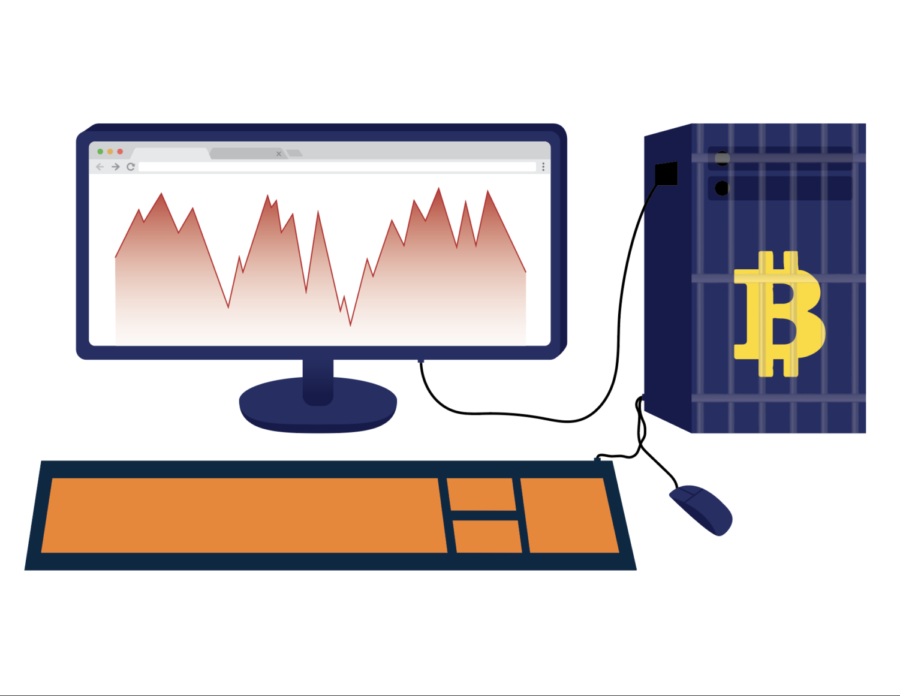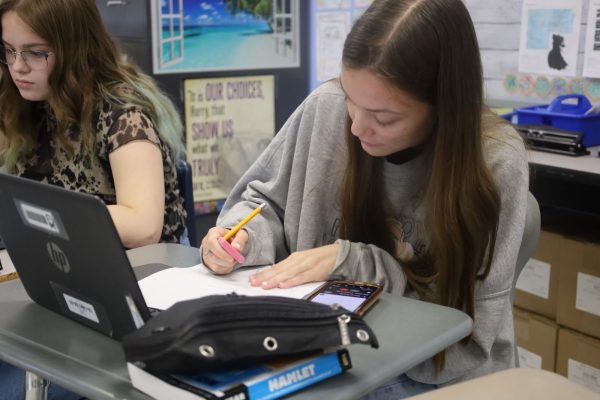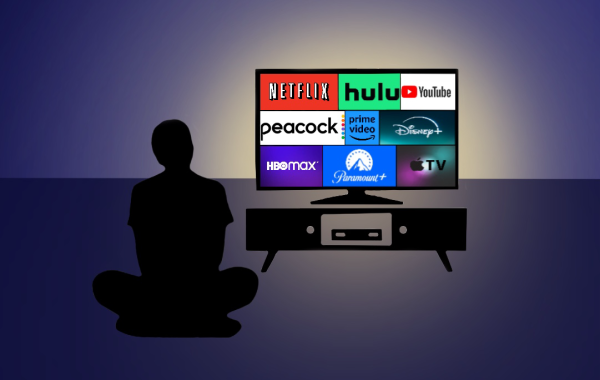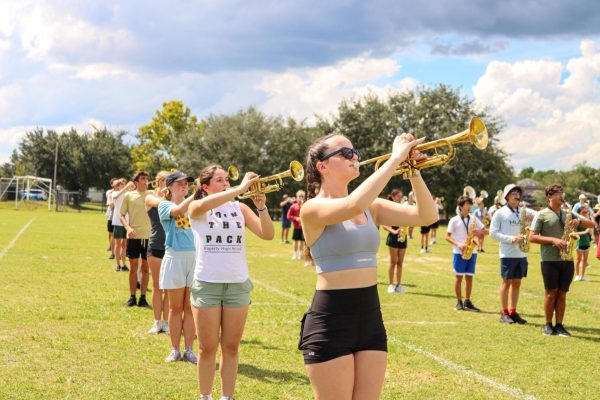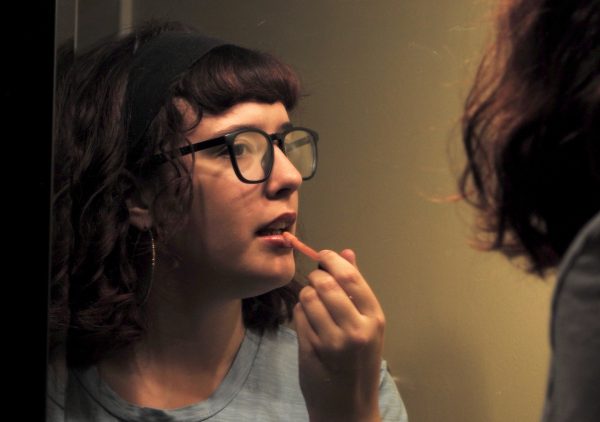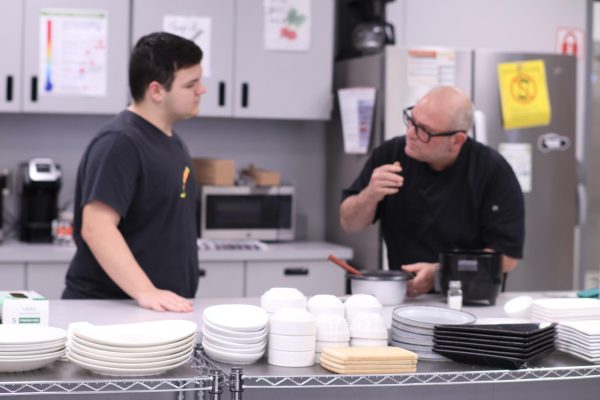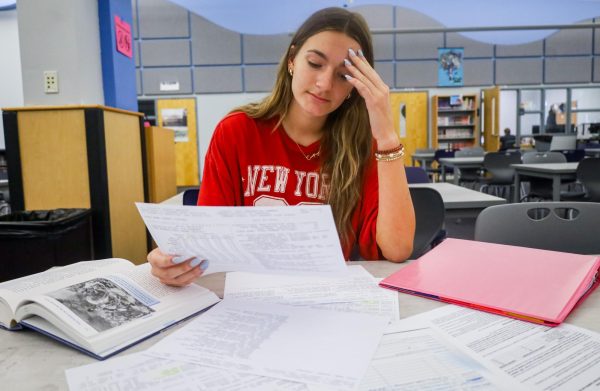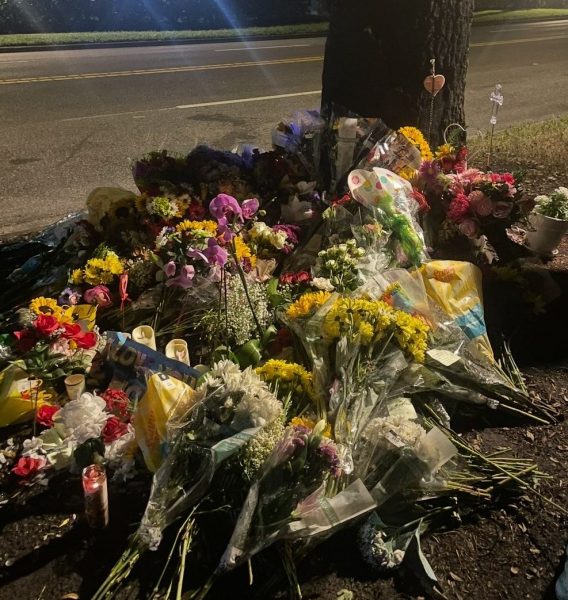The cryptic world of crypto
A closer look at digital currency and the kids who collect it
photo by Cat Eberlein
Students are able to make investments in cryptocurrency with nothing more than a computer. A “digital wallet” is used to store any tokens acquired.
Imagine a dollar bill. You can hold it in your hands, fold it and put it into your wallet. When you want to buy a candy bar, you can take it out again and feed it into a vending machine. Voila- you’ve used your dollar in the way it’s meant to be used.
Now imagine that that dollar bill only exists online. Instead of having to put it into your wallet, it already exists there. When you want to pay for a product, you can use that digital dollar and transfer it to whoever you are buying a product from. Voila- you’ve discovered the idea behind cryptocurrency.
Cryptocurrency (or crypto for short) is, according to Coinbase, decentralized digital money designed to be used over the internet. It has grown in popularity and prominence in the past few years, and some students have invested in it.
Senior Blake Watts has been invested in crypto for a little under a year. He describes it as “a way for people to regain their financial freedom, at least for now. It is a form of currency that is directed purely by the driving forces of the consumers and isn’t controlled by a government.”
Watts has invested some of his money into cryptocurrencies like Bitcoin, Cardano, and Shiba Inu. His experience has been mixed: “I was up, and now I’m down. I got too busy to follow as much as I was. I guess I held on too long and then it crashed.”
Cryptocurrency is largely unregulated, as opposed to the stock market which operates within rules set by governmental bodies. The unregulated nature of digital money is what allows people to lose money quickly, but a lucky roll of digital dice lets some get rich quick.
Junior Caleb Barber invested in Dodge Coin and Shiba Inu. He’s made money investing in crypto. “If I sell [my investments] then I’ll make about 175 bucks.”
There are different approaches to making money with crypto. They range from an involved, day trader-esque tact to a more laid back and leisurely market strategy.
“I just pull up my robinhood app and look at it. I don’t really do anything to it, I just leave it” Barber said.
Watts took a more hands on approach while working with crypto. “It takes a lot of focus and attention to know when to enter and exit the market in order to make a profit. With school it takes away the time to analyze how the markets are moving, and that’s how I lost money” Watts reflected.
The natural question after hearing about crypto is “should I invest?” The resulting answer is a little more complicated than a simple yes or no.
Barber views crypto as a risk worth taking. “Absolutely (students should invest in crypto). It’s a gamble, but I think it’s a good idea.”
Cryptocurrency is a gamble due to its unregulated nature. Government intervention in the stock market can be viewed in a similar way to jetties at a beach; when waves crash into the stones which comprise it, they “break” reducing their size and strength and keeping the waters calm. Governmental regulations act in a similar way. Waves of market change, be they good or bad, are reduced in intensity. The result is smaller gains, but also smaller losses; smoother waters.
Crypto has none of those protections, which is what led to the choppy results that Blake Watts saw in his investment. He stresses caution for kids considering a cryptocurrency investment.
“If they want to build capital for their future I would say they should look into it” Watts said. “Or have a broker who invests your money into safer options like bonds or a Roth IRA. Those are the safest options.”
Digital currency is certainly risky. For some that risk pays off. For others, perhaps not. Read the sidebar attached to this story to see how a $100 investment in the cryptocurrency Shiba Inu changed over the course of 10 days.
Your donation will support the student journalists of Hagerty High School. We are an ad-free publication, and your contribution helps us publish six issues of the BluePrint and cover our annual website hosting costs. Thank you so much!

